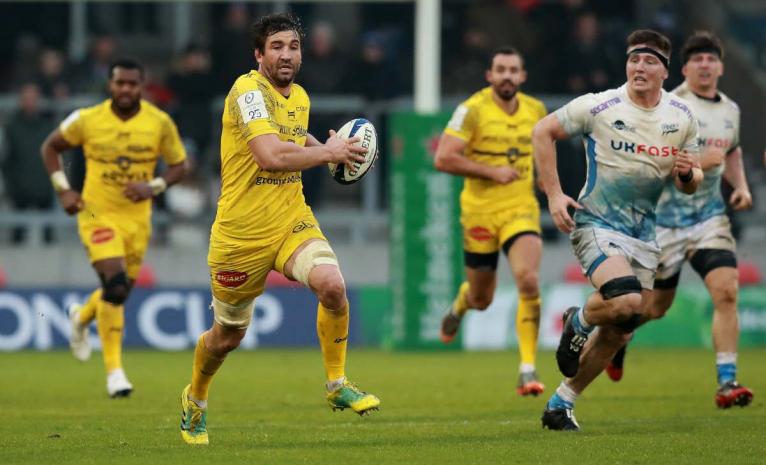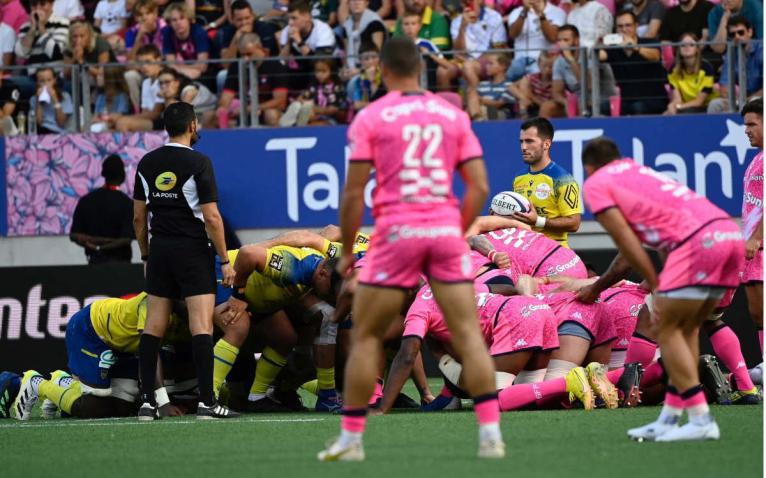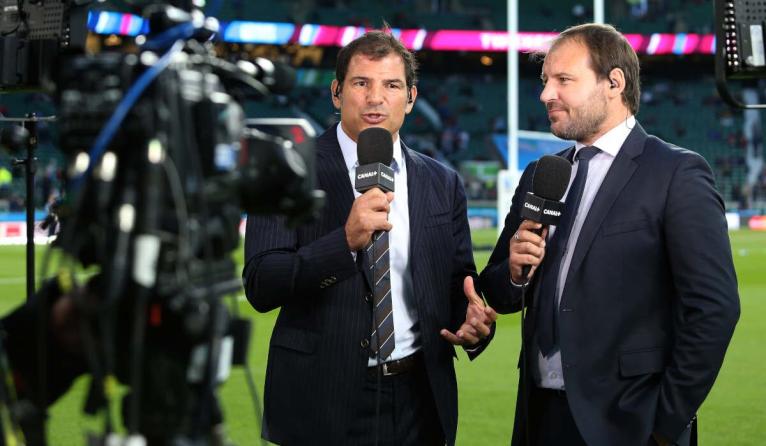There was a grim irony last Monday to an interview published in Midi Olympique with Hans-Peter Wild, the minted owner of Stade Français. As he set out his exciting plans for the future, which involve replacing Gonzalo Quesada as head coach with Laurent Labit next season, as well as an overhaul of the squad, the same paper carried news of Worcester’s demise.
By the end of last week Midi Olympique had informed its readers that another Premiership club was no more, with Wasps following Worcester into administration. As one would expect there was not a frisson of Schadenfreude; only sympathy for the players, backroom staff and everyone else at Worcester and Wasps who strove so hard to save their clubs and who now face uncertain futures.
The demise of Wasps has been a particular shock for the French. This is an iconic club, twice winners of the Heineken Cup, where two Frenchmen – Serge Betsen and Raphaël Ibañez – became cult heroes for the fans during the glory years of the 2000s. How could it go so wrong?
In an editorial in last Friday’s edition headlined ‘The English Peril’, Midi Olympique mourned for Wasps. ‘An institution is dying,’ it declared. ‘It will make no one smile… or, worse, rejoice in a childish spirit of rivalry.’
Of greater concern for the newspaper was the plight of English rugby in general. While the professional game in France has never been in better health – on and off the field, with Les Bleus strong favourites for next year’s World Cup – across the Channel there is a malaise. Describing Eddie Jones’ team as “morose”, Midi said the decline of English rugby has ramifications for France and the sport in general in Europe. “There is no great Six Nations Tournament without a great England,” said the paper. “There will be no exciting European Cup without Saracens, Exeter, Harlequins or Leicester to join the final fight. There is no great moment in sport without a great rivalry.”
There may be a touch of melodrama to that statement. England did, after all, record a series win in Australia over the summer, and Saracens and Sale this season look capable of giving the top French clubs a run for their money in the Champions Cup.

But there is no doubt a seam of despondency running through English rugby at the moment, articulated by Ugo Moyne at the end of last week. “If that can happen to a club the size of Wasps, who else might that happen to?” said the former Harlequins and England wing.
“As English rugby fades, European rugby loses some of its flavour,” said Midi Olympique. “This is deeply regrettable and it is everyone’s business. At a time when the financial power of the Top 14 is once again hegemonic, the French should be wary of crushing the competition.”
A noble declaration but one that is unlikely to be embraced by the Top 14 clubs. Already they are circling, looking to pick off the cream of English talent with Worcester hooker Curtis Langdon signing a short-term deal with Montpellier, the club where Sam Simmonds will be headed next season. Christian Wade has joined Racing 92 on his return from the USA. Joe Marchant is a target for Stade Français and Worcester’sBiyi Alo is also being linked to the Top 14.
They are unlikely to be the last Englishmen to decamp to France. Stade have big plans for the future. Hans-Peter Wild says he wants to bring back the glory days to the club when, under the ownership of Max Guazzini, Stade Français put bums on seats and trophies in cabinets. It’s rumoured that Laurent Labit and his assistant, Karim Ghezal (currently a forwards’ coach with the national XV) will be ‘active’ in the transfer market in the coming months.
The average gate for a Top 14 match in 2021-22 was 14,500, compared to 11,630 in the Premiership. This is all the more remarkable given that several French clubs – Brive, Pau, La Rochelle and Castres – are based in towns. English clubs are in cities and yet they still struggle.
Then just a few miles down the road in Paris there is Racing, where Stuart Lancaster has been appointed head coach for next season. How many of his countrymen will he sign between now and 2023? England don’t pick players who ply their trade overseas but once the World Cup is over one can envisage an exodus of big names to France.
What will that do to the Premiership? Weaken the quality of the competition and diminish still further the revenue of the clubs. Who wants to watch Saracens play Leicester when their top stars are in the Top 14?
French clubs have always had the edge over their English rivals in this regard. The average gate for a Top 14 match in 2021-22 was 14,500, compared to 11,630 in the Premiership. This is all the more remarkable given that several French clubs – Brive, Pau, La Rochelle and Castres – are based in towns. English clubs are in cities and yet they still struggle to bring in the punters.
Football is partly to blame. The Premier League is a juggernaut that crushes all before it. French football, in contrast, is something of a joke. Take Marseille and Paris Saint-Germain out of Ligue 1 and the top French teams would struggle to survive in the Championship, let alone the Premier League. This is reflected in the attendances. The average gate for Marseille last season was 56,783 and for PSG 47, 283. But at the other end of the table, Clermont’s average was 11,720, marginally better than Montpellier.

These cities’ rugby clubs boasted better average gates last season; so did Bayonne, playing in ProD2, an indication of how in the south of France rugby dominates football.
This in turns makes it easier to attract commercial partners. The Top 14 clubs are well spread geographically (France has twice the land mass of the UK, which helps) and local companies clamour to be associated with the nearest successful sporting institution. In Clermont, for example, the Michelin tyre manufacturer, the city’s main employer, sponsors the rugby club and has no affiliation with the football team. In Toulouse, ‘Peugeot’ is emblazoned on the shirts of the rugby players while the footballers have to make do with an estate agent barely known outside France.
One of the main reasons Biarritz and Bayonne have struggled in recent seasons is because of their close proximity – their stadiums are three miles apart – that makes it hard to attract commercial partners in a region with only modest industry.
The financial health of French clubs allowed them to ride out the Covid pandemic much better than their English counterparts, despite the fact that the money they received from the government was far less.
But the biggest single factor that explains the discrepancy in financial stability between the Top 14 and the Premiership is TV money. In December 2020 BT Sport renewed the TV rights for a further three years for a total of £110m; three months later Canal Plus signed a new four year deal with the Top 14 that was worth approximately £98m a season.
The financial health of French clubs allowed them to ride out the Covid pandemic much better than their English counterparts, despite the fact that the money they received from the government was far less. The Premiership received £124m in government aid, while the thirty professional clubs in France got just £35m from their government. Covid may have killed off Wasps and Worcester but the truth is they had been sick for years.

At the weekend Bill Sweeney, the RFU chief executive, painted a bleak picture of English rugby, describing its model as ‘broken’. It can be fixed, he said, if the Premiership learns from the Top 14 clubs. “They define themselves as there to grow and protect the interests in the French game,” [1] said Sweeney. “They have to have a complete review of their financial projections and business plan, their assumptions around ticketing and hospitality – if they look out of whack to previous years they are scaled back.”
In charge of policing the finances of France’s 30 professional clubs is the DNACG ( Direction Nationale d’Aide et de Contrôle de Gestion), often described as the “financial gendarme” of French rugby. Each club must submit its budget to the DNACG at the start of the new season and their accounts can be examined on demand at any time; if clubs fail to adhere to their budget they will be fined or, in extreme cases, relegated from the Top 14. In recent years this punishment has been meted out to Grenoble, Bourgoin and Montauban. Sweeney believes the English game needs a body similar to the DNACG
In June France’s equivalent of the Financial Times, Les Echos, published an article that predicted that the 2023 World Cup will make a profit of 68m euros. It was, stated the paper, more good news for the French game “at a time when club rugby is doing wonderfully well, with a record number of registered players at the FFR and a return to an average attendance in the Top 14 ‘pre-covid’.”
Rugby may be in crisis across the Channel, but in France the sport is in the pink, not in the red.


As a former player I was passionate about Gloucester Rugby but stopped supporting 10 years ago. At the time they disappointed & they still do.
Clive Woodward wrote a while ago that Twickenham was just like a big pub with people just drinking and not watching the game. The old days of mixing with Bath supporters in the West car park after they had just thrashed us are long gone. There’s no longer a thrill of visiting Twickers.
The odd club games on TV are mostly brilliant. Why were they smashed by the Froggies at the weekend. Is it all down to financial support?
Despite play in the Premiership being so fantastic and exciting we have two clubs in Administration, with suggestions that other English Clubs are on the brink. This wouldn’t be the case if Management and Stewardship had been of the highest order. How on Earth did the Premiership and Club Directors/Owners act so recklessly, and be allowed to take onboard unsustainable levels of debt, causing awful disruption to our precious national game and placing it in such dire peril? Scandalous I say. Where has been the effective stewardship? We need to move fast and amend our broken Premiership model by the swift introduction of something similar to the French DNACG. This is likely however be too late to prevent further damage to the League and loss of Premiership Clubs.
Is it fair to say that a strong central control is working well for France (and for Ireland), whereas a weak centre is allowing England (and Wales) to crumble?
All of the above is true and none of it makes me happy as an England and Wasps supporter.
I can see the day coming when the England team will have to drop the rule about playing out of the country and, like Scotland, offer any good player a game no matter where they play as long as they have a grandparent that is English.
🇫🇷🇫🇷🇫🇷